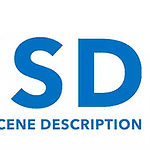

Microsoft recently launched its innovative VR meeting platform Mesh for Teams, which is already being used by renowned companies such as Takeda, Accenture, BP and Mercy Ships. This platform, now available to customers, allows access to Microsoft's dynamic virtual meeting solution via both desktop and Meta Quest headsets.
Mesh for Teams is a comprehensive toolset that enables enterprise customers to create virtual immersive spaces for various business needs. These requirements include employee events, tours, product presentations and training sessions. Mesh for Teams not only offers immersive virtual meeting rooms, but also customizable avatars that can cover a wide range of use cases.
As Leo Barella, Chief Technology Officer at Takeda, points out, despite the rapid evolution of the world of work, the importance of human connection remains unchanged. Mesh for Teams seems to build a bridge to maintain this connection even in an increasingly digitalized work environment.
Companies can choose from various pre-built immersive environments and personalize them with no-code/unity tools. This makes it easy to create and customize meeting rooms. In addition, large events can be hosted with additional visual elements such as banners and videos.
A key element of Mesh for Teams is the newly developed avatar system. This allows employees to create digital versions of themselves for virtual meetings, providing a more personal and interactive experience.
Microsoft's partnerships, such as with Accenture and BP, demonstrate the practical use of Mesh for teams. These companies are using the platform to connect global teams and both reduce costs and improve sustainability.
Microsoft is making significant progress in its vision of an industrial metaverse future. The availability of Mesh for Teams on Meta Quest headsets is a crucial step for Microsoft in realizing its vision of a virtual, collaborative work environment.
Overall, Mesh for Teams demonstrates the enormous potential of VR technologies in a business context. Microsoft's commitment to providing innovative solutions that are both practical and forward-thinking highlights the growing importance of VR and AR in today's business world. Mesh for Teams exemplifies the opportunity to transform traditional working methods and achieve a new level of collaboration and interactivity.
While Microsoft is making an impressive entry into the world of virtual meetings with Mesh for Teams, it's worth taking a look at Facebook's Horizon Worlds and understanding what differentiates Microsoft's approach from Facebook's.
Horizon Worlds, an initiative from Facebook (now Meta), aims to provide a social VR experience where users can interact, play and create content in a virtual world. Although it is an innovative platform, Horizon Worlds focuses mainly on social interactions and leisure activities, making it less suitable for use in a business context.
In contrast, with Mesh for Teams, Microsoft has created a platform specifically designed for the enterprise context. The key features of Mesh for Teams, such as the integration with Microsoft Teams, the ability to create customized business applications and the integration of professional tools such as No-Code/Unity, show that Microsoft is taking a clearly business-oriented approach.
In addition, Mesh for Teams offers seamless integration with existing Microsoft products that are already used in many companies. This integration allows companies to easily transfer existing workflows and processes to the VR environment, minimizing the learning curve for employees.
Another advantage of Mesh for Teams is its focus on collaboration and productivity. While Horizon Worlds focuses more on social and creative aspects, Mesh for Teams concentrates on features specifically designed for business communication, teamwork and professional presentations. This makes it an ideal platform for companies looking for an efficient and effective way to collaborate remotely.
In conclusion, Microsoft's Mesh for Teams has a significant advantage over Facebook's Horizon Worlds thanks to its strong focus on the enterprise sector and integration into the existing ecosystem of Microsoft products, especially when it comes to practical application in the business world.

Are you interested in developing a virtual reality or 360° application? You may still have questions about budget and implementation. Feel free to contact me.
I am looking forward to you
Clarence Dadson CEO Design4real





